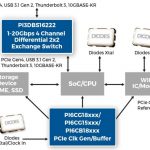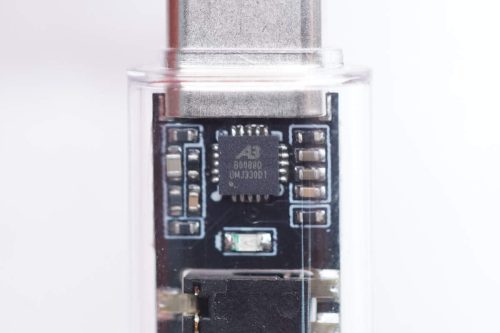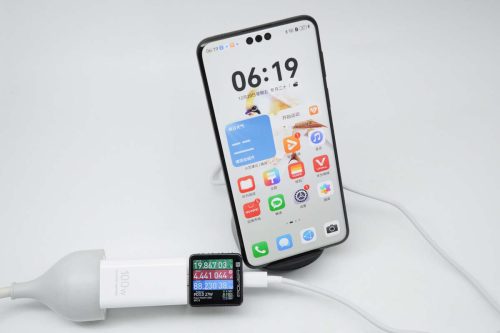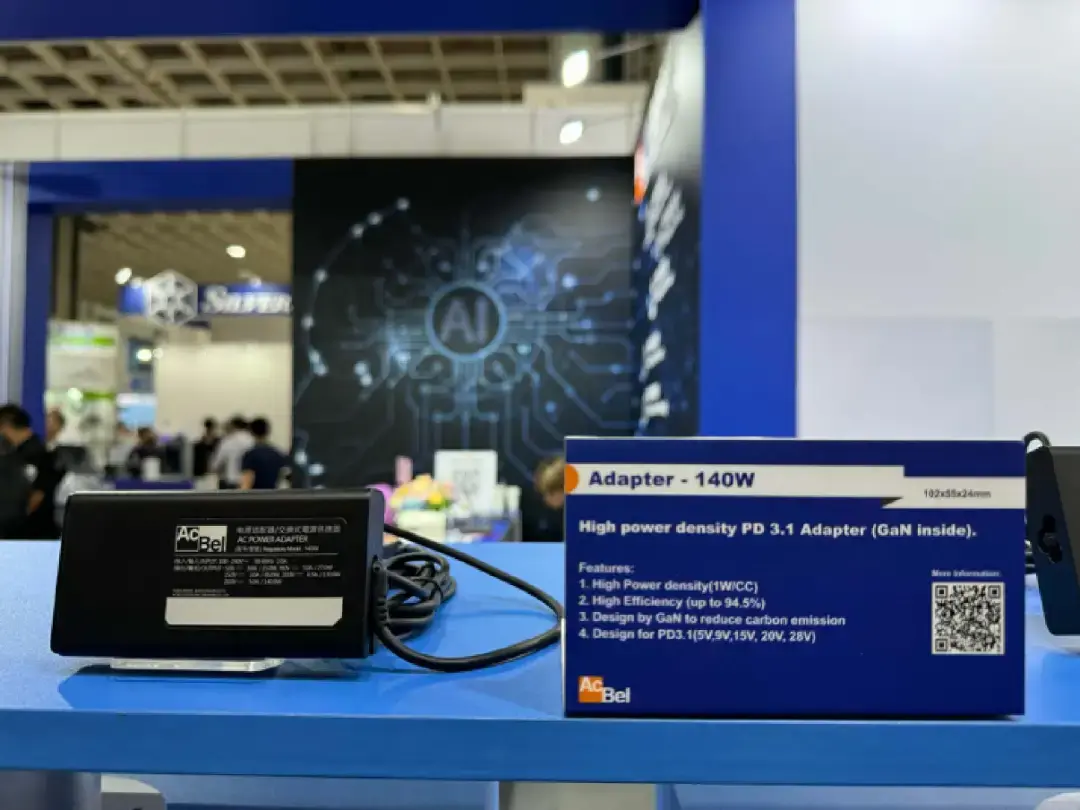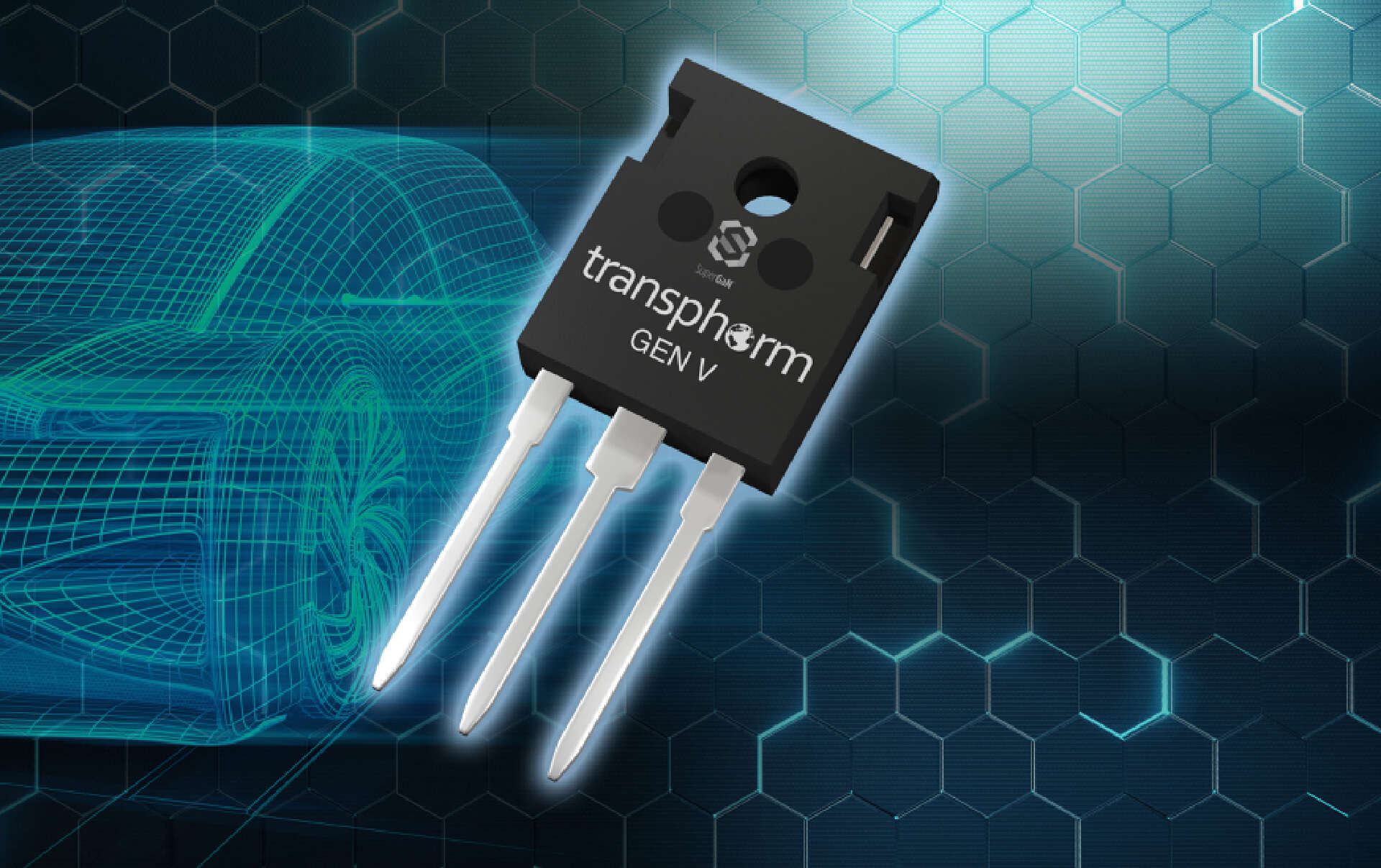Diodes Incorporated announced at USB Developer Days, the PI3DBS16222 crossbar switch for high-speed differential and serial signals. Optimized for the latest protocols, it provides an almost-universal solution to routing high-speed signals up to 20Gbps around high-performance electronic equipment, from personal computers and mobile devices to network switch backplanes and high-end test tools.
With the increasing use of high-speed serial and differential protocols, such as PCIe® 4.0, ThunderboltTM 3, SuperSpeed USB 20Gbps, and 10 GBase-KR, there is a growing demand for more efficient solutions able to switch and route signals around PCBs and between connectors and integrated circuits. Because these signals now run at up to 20Gbps, any solution must operate without impacting signal integrity or introducing delays or errors.
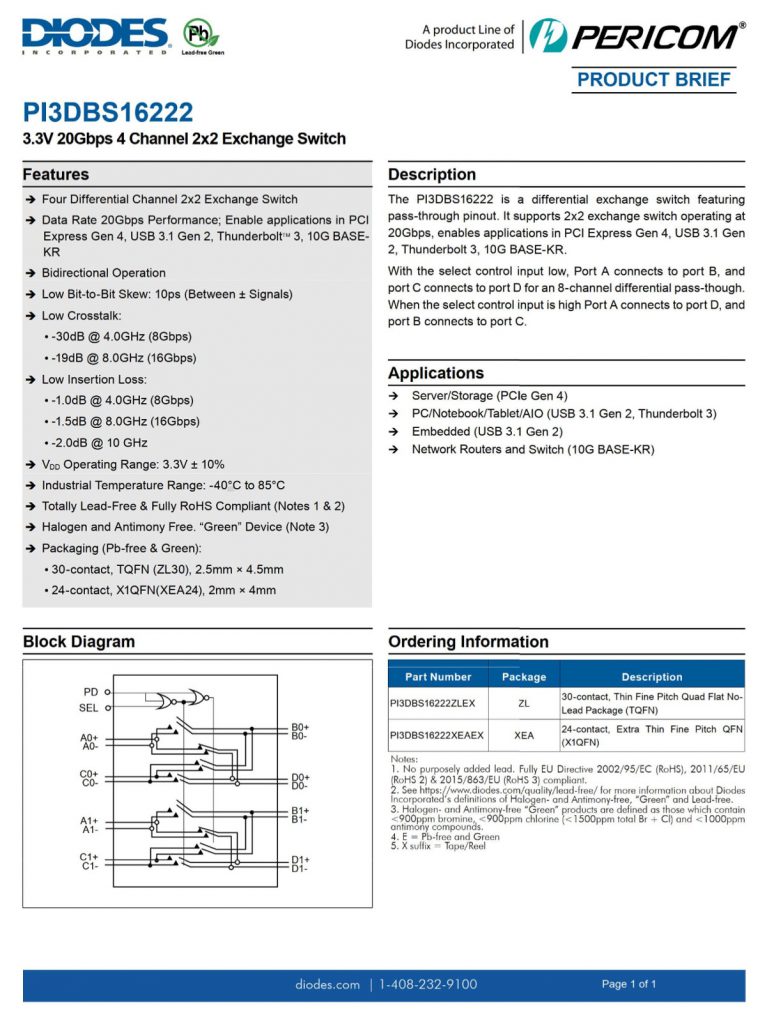
The PI3DBS16222 is a 4-channel, differential crossbar switch with pass-through mode, configured in a 2 x 2 topology. It features four differential pairs on the input side and four pairs on the output side. A single control signal switches each input pair between two output pairs while a separate enable input provides input/output isolation with high impedance.
“Adoption of the USB Type-C® interface is growing exponentially and facilitating the industry’s move to SuperSpeed USB 20Gbps capable products,” said Jeff Ravencraft, President and COO of the USB Implementers Forum. “Solutions such as the PI3DBS16222 provide USB developers a valuable tool when designing high-speed signal paths for new SuperSpeed USB 20Gbps applications.”
“Diodes Incorporated is proud to enhance our industry leading, 20Gbps Signal Mux family with our latest 4–channel, differential crossbar switch,” said Kay Annamalai, Senior Marketing Director, Diodes Incorporated. “Our crossbar switch operates with extremely high -3dB bandwidth of 13GHz, leading to usage in high-speed routing of signals that is growingly needed in mobile computing, networking, and server/storage applications.”
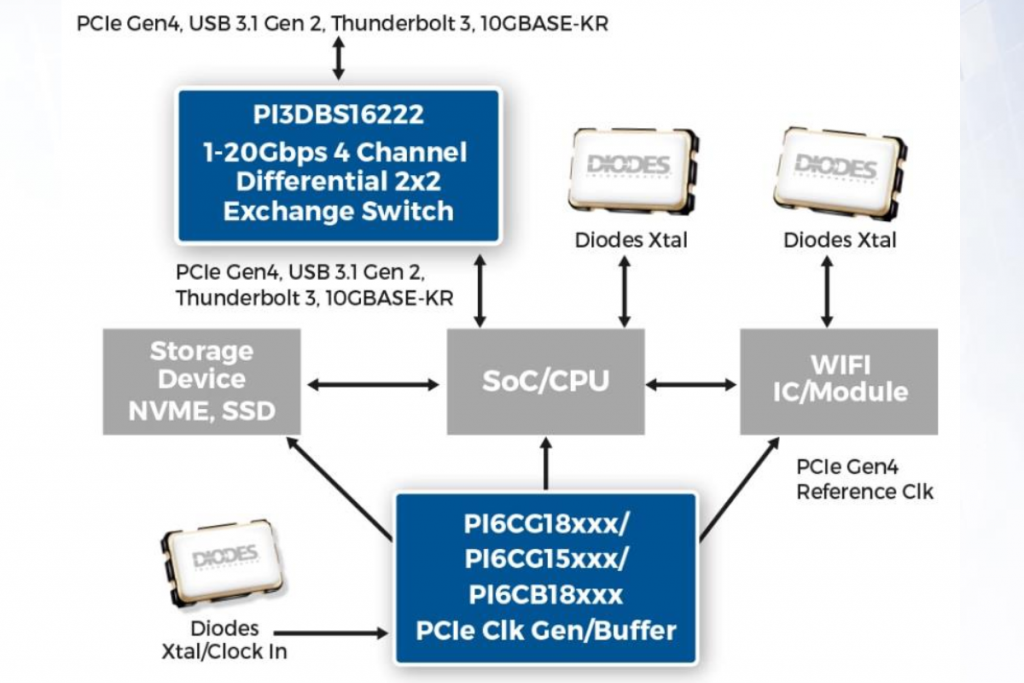
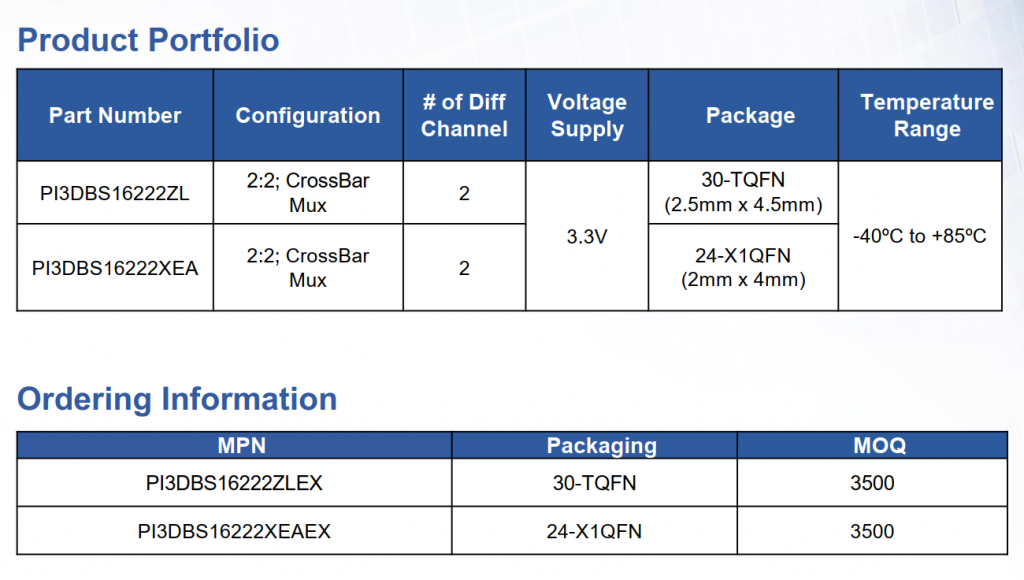
The PI3DBS16222 operates at up to 20Gbps with excellent signal integrity, enabling it to cover all of the mainstream protocols today. The performance is enabled in part by Diodes Incorporated’s use of silicon on insulator (SOI) technology, which drastically reduces the effect of parasitic capacitances within the device, directly contributing to increased performance.
The device is offered in the TQFN package measuring 2.5mm x 4.5mm and the X1QFN package measuring 2mm x 4mm. Its small size makes the PI3DBS16222 suitable for use in space-constrained mobile applications.Diodes Incorporated will be exhibiting at USB Developer Days at the Grand Hyatt, Seattle on September 17-18, 2019.Further information is available at www.diodes.com.
About Diodes Incorporated
Diodes Incorporated (Nasdaq: DIOD), a Standard and Poor’s SmallCap 600 and Russell 3000 Index company, is a leading global manufacturer and supplier of high-quality application specific standard products within the broad discrete, logic, analog and mixed-signal semiconductor markets. Diodes serves the consumer electronics, computing, communications, industrial, and automotive markets. Diodes’ products include diodes, rectifiers, transistors, MOSFETs, protection devices, function-specific arrays, single gate logic, amplifiers and comparators, Hall-effect and temperature sensors, power management devices, including LED drivers, AC-DC converters and controllers, DC-DC switching and linear voltage regulators, and voltage references along with special function devices, such as USB power switches, load switches, voltage supervisors, and motor controllers. Diodes also has timing, connectivity, switching, and signal integrity solutions for high-speed signals. Diodes’ corporate headquarters and Americas’ sales office are located in Plano, Texas and Milpitas, California. Design, marketing, and engineering centers are located in Plano; Milpitas; Taipei, Taiwan; Taoyuan City, Taiwan; Zhubei City, Taiwan; Manchester, England; and Neuhaus, Germany. Diodes’ wafer fabrication facility is located in Manchester, with an additional facility located in Shanghai, China. Diodes has assembly and test facilities located in Shanghai, Jinan, Chengdu, and Yangzhou, China, as well as in Hong Kong, Neuhaus and Taipei. Additional engineering, sales, warehouse, and logistics offices are located in Taipei; Hong Kong; Manchester; Shanghai; Shenzhen, China; Seongnam-si, South Korea; and Munich, Germany, with support offices throughout the world.
Source: Diodes

